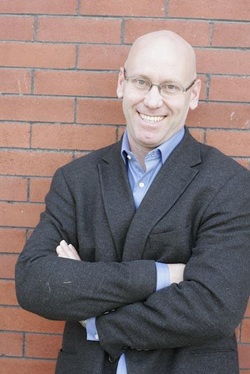a

Dave Waldron
Principal and Co-Founder of Synapse Strategies
David Waldron is Principal and Co-Founder of Synapse Strategies, a management consultancy that specializes in developing sustainability strategies for highly complex and challenging situations. Since beginning his career as a professional civil engineer, David was a central figure in establishing an international award-winning sustainability movement in Whistler, Canada’s leading tourism community, including the introduction of community energy planning, representing Whistler on the Environmental Advisory Committee for Vancouver and Whistler’s bid for the 2010 Olympics.
Dave was ‘lead architect’ of an original international Master’s program “Strategic Leadership towards Sustainability” at BTH, Sweden where BTH become the top-ranked Swedish University for sustainability education. He also helped launch IMAGINE, a European network of local authorities re-imagining their energy futures. David has also been Director of Sustainability for the David Suzuki Foundation (Canada’s leading environmental organization) and strategic sustainability advisor to a large Canadian mining company.
Dave teaches Sustainability Leadership through the University of British Columbia (UBC) and is an Adjunct Professor with Simon Fraser University (SFU), both in the Vancouver area. He has a Bachelor’s of Applied Science (Civil Engineering), from UBC and a Master’s of Resource and Environmental Management, from SFU.
"Integrating green buildings and renewable energy in a tourism community: the case of Whistler, Canada"
This presentation will tell the story of how an integrated community approach to sustainability led to a long and growing list of green innovations including new green buildings and neighborhoods, renewable energy projects and greening of tourism businesses. Located 120 km north of Vancouver, Whistler is consistently ranked as the number one mountain resort in North America and recently hosted about half the events of the Vancouver 2010 Winter Olympics. Environmental sustainability was introduced in this ‘resort community’ late in the 1990’s through a series of national and international award-winning strategic plans and community partnerships. This led directly to such things as a community energy planning, new standards for buildings and neighborhoods, greening of local government operations (e.g. building retrofits), new approaches for tourism-based businesses and several renewable energy projects. Establishing a strong strategic framework, and engaging thousands of people in practical steps, was key to making the integrated plans a reality. While challenges remain, Whistler continues to pursue more opportunities for becoming a greener, healthier and more sustainable resort community
Principal and Co-Founder of Synapse Strategies
David Waldron is Principal and Co-Founder of Synapse Strategies, a management consultancy that specializes in developing sustainability strategies for highly complex and challenging situations. Since beginning his career as a professional civil engineer, David was a central figure in establishing an international award-winning sustainability movement in Whistler, Canada’s leading tourism community, including the introduction of community energy planning, representing Whistler on the Environmental Advisory Committee for Vancouver and Whistler’s bid for the 2010 Olympics.
Dave was ‘lead architect’ of an original international Master’s program “Strategic Leadership towards Sustainability” at BTH, Sweden where BTH become the top-ranked Swedish University for sustainability education. He also helped launch IMAGINE, a European network of local authorities re-imagining their energy futures. David has also been Director of Sustainability for the David Suzuki Foundation (Canada’s leading environmental organization) and strategic sustainability advisor to a large Canadian mining company.
Dave teaches Sustainability Leadership through the University of British Columbia (UBC) and is an Adjunct Professor with Simon Fraser University (SFU), both in the Vancouver area. He has a Bachelor’s of Applied Science (Civil Engineering), from UBC and a Master’s of Resource and Environmental Management, from SFU.
"Integrating green buildings and renewable energy in a tourism community: the case of Whistler, Canada"
This presentation will tell the story of how an integrated community approach to sustainability led to a long and growing list of green innovations including new green buildings and neighborhoods, renewable energy projects and greening of tourism businesses. Located 120 km north of Vancouver, Whistler is consistently ranked as the number one mountain resort in North America and recently hosted about half the events of the Vancouver 2010 Winter Olympics. Environmental sustainability was introduced in this ‘resort community’ late in the 1990’s through a series of national and international award-winning strategic plans and community partnerships. This led directly to such things as a community energy planning, new standards for buildings and neighborhoods, greening of local government operations (e.g. building retrofits), new approaches for tourism-based businesses and several renewable energy projects. Establishing a strong strategic framework, and engaging thousands of people in practical steps, was key to making the integrated plans a reality. While challenges remain, Whistler continues to pursue more opportunities for becoming a greener, healthier and more sustainable resort community
